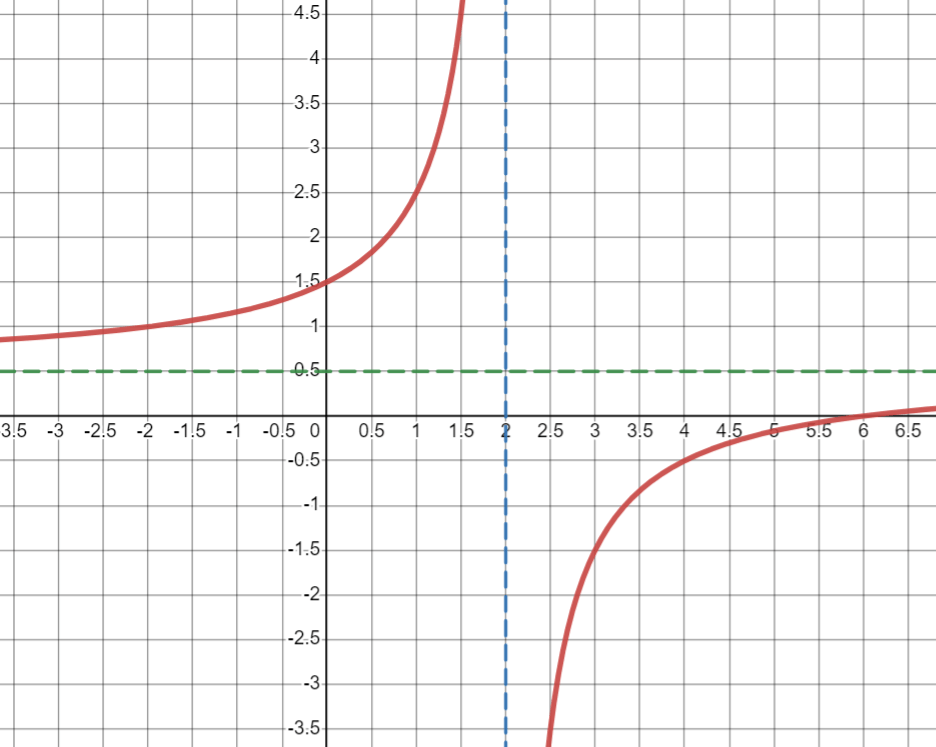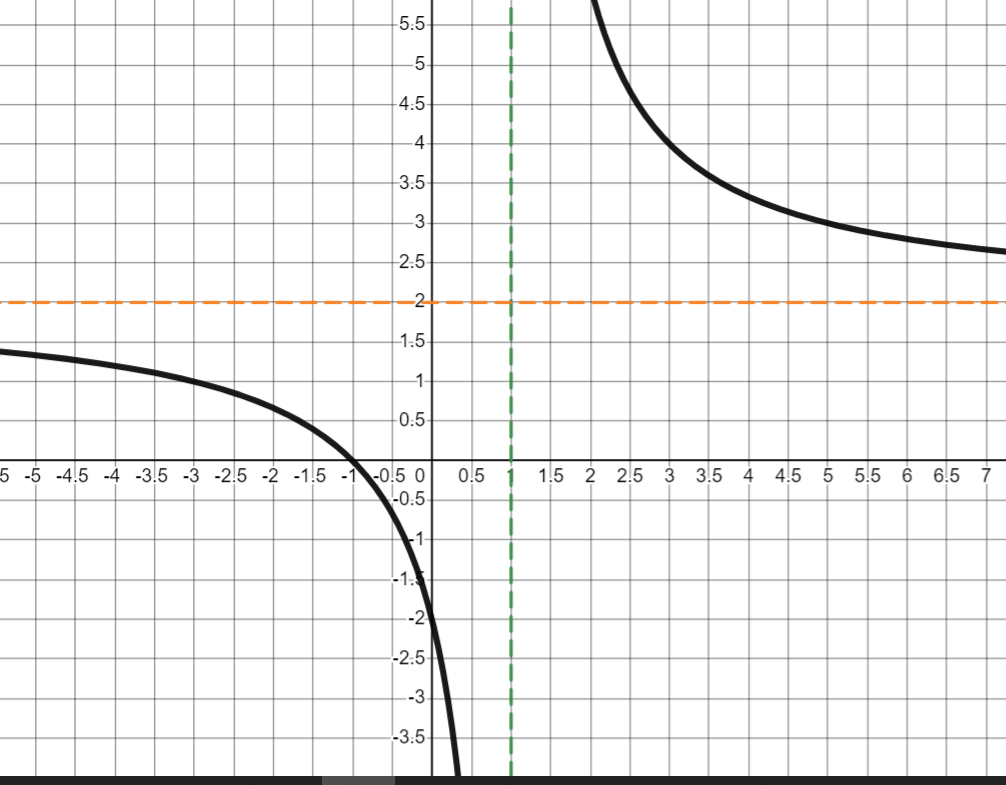DON'T FORGET TO SCROLL DOWN
Given

What is the
*Vertical Asymptote
*Horizontal Asymptote
Vertical Asymptote x=2
Horizontal Asymptote y= 0.5
Multiply
(10)/(3x-6)*(4x-8)/(5)
8/3
Solve for x
(2)/(x) = (3)/(x-5)
x = -10
Given
y=(2x-1)/(x+4)
What is the
*Vertical Asymptote
*Horizontal Asymptote
Vertical Asymptote x = -4
Horizontal Asymptote
y= 2
Multiply
(4x+8)/((x+5)(x-5)) *(2x-10)/(5x+10)
8/(5(x+5)
1/(x+1)= 15/(x+10)
x=-5/14
DON'T FORGET TO SCROLL DOWN
Given

What is the
*Vertical Asymptote
*Horizontal Asymptote
*Value of Root
*Value of Y-intercept
*Vertical Asymptote x = 1
*Horizontal Asymptote y = 2
*Value of Root = -1
*Value of Y-intercept = -2
Divide
(3x)/(6x+9) div (4x)/(4x+16)
(x+4)/(2x+3)
Solve for x
(x+3)/(4) = (x+6)/(6)
x = 3
Given
y=(12x-2)/(2x+1)
What is the
*Vertical Asymptote
*Horizontal Asymptote
*Value of Root
*Value of Y-intercept
*Vertical Asymptote
x=-1/2
*Horizontal Asymptote y=6
*Value of Root =
1/6
*Value of Y-intercept = -2
Divide
(9x^2)/((x+6)(x+6)) divide (12x)/(x^2+6x)
(3x^2)/(4(x+6)
Solve for x
3/(x+2) = 6/(3x-2)
x = 6